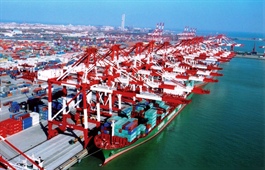Project aims to enhance trade remedy capacity as Vietnam joins new-generation FTAs
Project aims to enhance trade remedy capacity as Vietnam joins new-generation FTAs
Viet Nam has set a target of amending the Law on Foreign Trade Management and relevant legal documents related to trade remedies or building a Law on Trade Remedies by 2030.

This is one of the goals of a project, which was approved late last week by Deputy Prime Minister Le Van Thanh, aimed to improve trade remedy capacity for domestic manufacturing industries in the context of Viet Nam’s participation in new generation free trade agreements (FTAs).
Other targets include providing knowledge and skills on trade remedies for staff in ministries, agencies and localities.
A team of legal experts and consultants who has in-depth knowledge of trade remedies are expected to be established to support manufacturing industries to ensure Viet Nam's interests in international trade.
Under the project, the inter-sectoral coordination mechanism in the field of trade remedy is set to be built and strengthened to meet the requirements of the trade remedy work in the new context, assisting the settlement of other countries’ trade remedy investigations into Vietnamese exports.
The capacity of the Trade Remedies Authority of Viet Nam will be strengthened to satisfy practical needs and effectively support domestic manufacturing industries.
The content of trade remedies will be included in the programmes, strategies and policies for the development of key manufacturing industries.
The project also targets enhancing international cooperation, actively participate in negotiations, develop regulations on trade remedies, settle disputes on trade remedies within the framework of the World Trade Organisation (WTO) and free trade agreements.
To realise the above-mentioned goals, some solutions should be adopted, including completing the model of trade remedy investigation agency in Viet Nam based on studying those of other countries and reviewing the agency’s operations in the country.
It is necessary to select several fundamental manufacturing industries, which have an important impact on socio-economic development to strengthen trade defence capacity during the implementation of FTAs.
A up-to-date database on investment, production, business, import and export in these industries should be set up to promptly consider and apply trade remedies in accordance with the law.
The building of infrastructure and software for investigation and application of trade remedies is also essential.
It is a must to set up and operate a portal to update developments of trade remedy cases related to Viet Nam, creating conditions for concerned parties to submit and access documents in the form of electronic data and responses during the investigation of the cases.
A mechanism should be developed for supporting and exchanging information between state management agencies, the business community and associations, especially small and medium-sized enterprises to assess the possibility of applying defensive measures and its impacts.

























